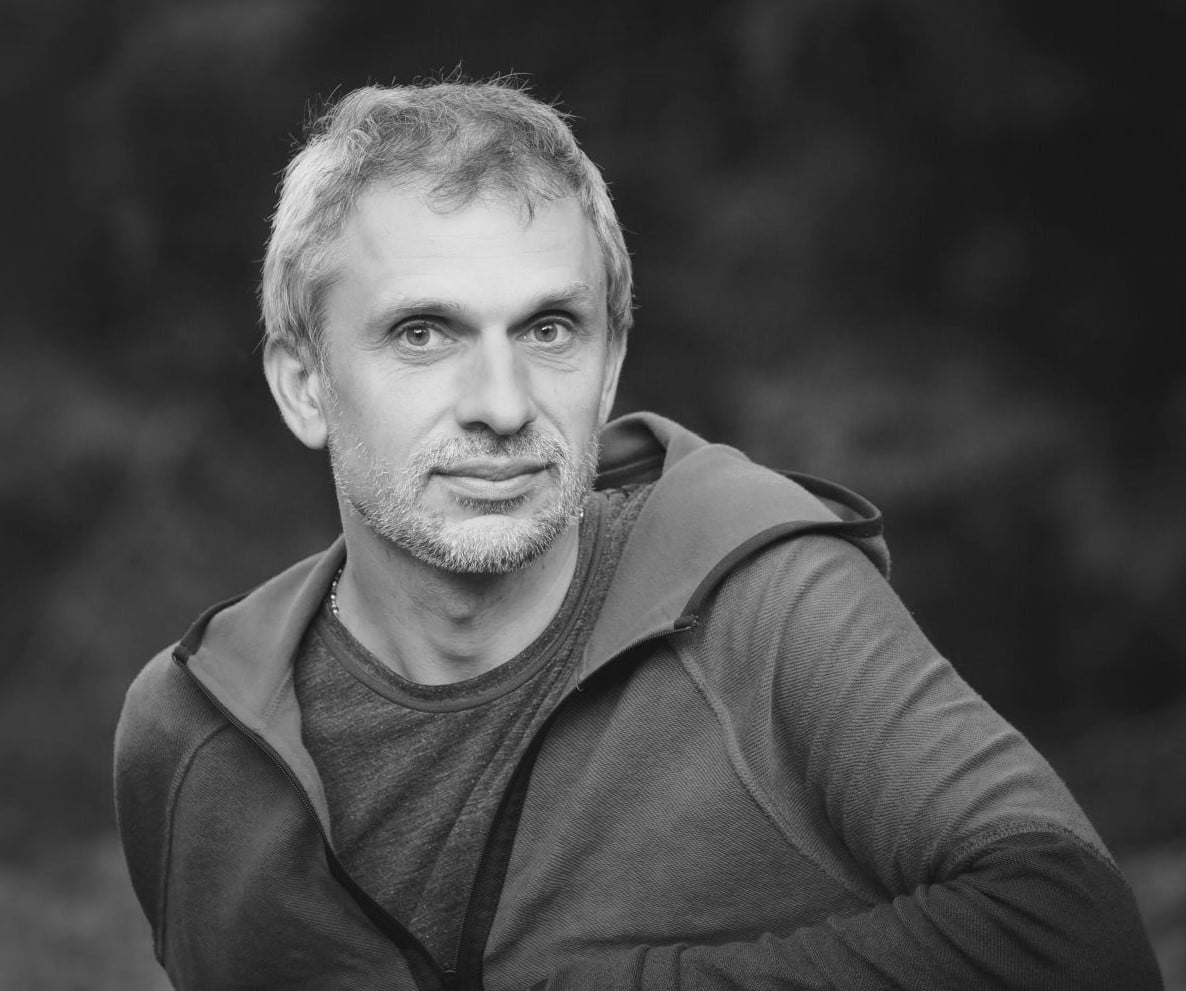
Mathura
Margus Lattik was born in Tallinn in 1973. He studied English Philology at the University of Tartu. During his stay in India from 2000 to 2003, he continued his education at the Vrindavan Institute for Higher Education, which is located near the city of Mathura – from which he took his pseudonym. He has also researched the indigenous culture of the island of Palawan in the Philippines. He was involved in the Estonian Hare Krishna movement for a long time, but has since ceased to be active there.
Lattik made his literary debut in the late 1990s with texts in an anthology of the literary group Erakkond by Kristiina Ehin, Mehis Heinsaar, Kalju Kruusa, Aare Pilv, and Berk Vaher. In 2001, he published his first volume of poetry »Poeesia valgel taustal« (tr: poetry against a white background), in which some of the texts are strongly influenced by the Indian tradition. Since then, he has published six collections of poems, a childrenʼs book, a travel book, and a CD with poems and music. He mainly writes in free verse in a manner thematically close to existentialism. Above all, there are two basic motifs that stand out in his work: the primacy of nature, which places his texts in the field of nature poetry, and the visualization of particular landscapes, which is characteristic of a form of the poetic travelogue. This visualization generates a kind of contemplative moment in which time seems to stand still and a state of unrestricted concentration on the present moment arises. »I work at every word, / shape my lines like well-tended garden beds / so that each of them might become something as simple / as a streak of sunset and a few gusts of wind, / something that would sound as naturally / as the singing sand or the lapping of waves / and still be something regal and / exalted.« »Jääminek« (2016; tr: Ice Walk) was Lattik’s first published prose text, which he himself describes as a kind of long poem. The book tells the story of a lonely old man in a deserted landscape who thinks about the past, time, and the peace of winter.
Lattik works as a painter, a literary and film critic, and as a program host at the Classical Radio of the National Broadcasting and writes essays on art. His poems have been set to music by several bands, including the Kirtana Rasa folk music group. His works have been translated into English, Finnish, Hebrew,Swedish, Chinese, and Spanish. Lattik is writing a doctorate on post-colonialism at the University of Tartu using the example of Derek Walcott, whom he, like Dylan Thomas, translated from English. He also adapted works from Hindi, such as those of Kunwar Narain and Mirabai. Lattik was awarded the Gustav Suits Prize in 2014 and the Virumaa Literature Prize in 2017. He lives in Lelle in Estonia.
Poeesia valgel taustal
Erakkond
Tartu, 2001
Sõstramesi
Erakkond
Külaküla, 2003
Kaks tuulehoogu
Erakkond
Rapla, Ristna, 2004
Kohalolu
Allikaäärne
Rapla, 2006
Inimene on rohi
Allikaäärne
Lelle, 2008
Luuletused Atitlani järvelt
Allikaäärne
Lelle, 2008
Kumalasepäev
Allikaäärne
Lelle, 2012
Käe all voogav joon
Alliaäärne
Lelle, 2013
Jääminek
Allikaäärne
Lelle, 2016
Tantsisklevail lehtedel ta keerleb
Allikaäärne
Tallinn, 2019
